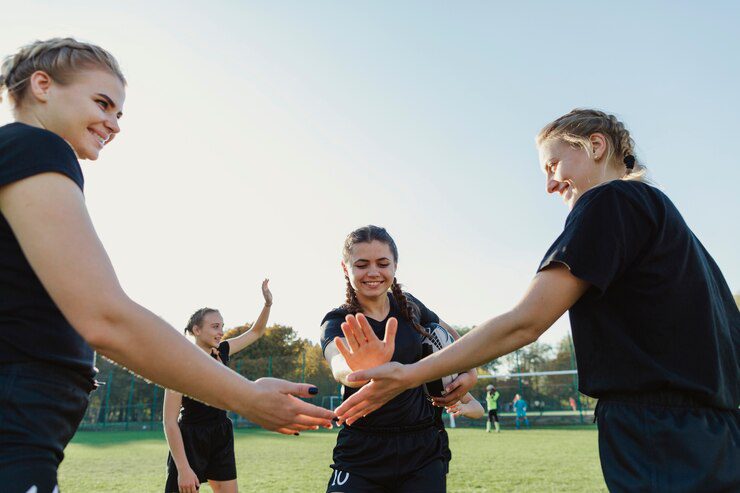In the world of sports, individual talent is celebrated, but the heart of every winning team lies in one crucial element: teamwork. It is often a team effort, even for the most talented individual, and that’s why it relates well to teamwork and cooperation. In this blog, we will talk about why teamwork is so valuable within sport, what positive impacts and changes it has, and why individual riders and the whole team need to win.
Trust and Communication
This paper also points out that cohesion used in sports is one of the main advantages leading to the formation of trust and enhanced communication. Regardless of the field, be it football, basketball court, or any other sport, the athletes depend on each other to perform sets, counter, or tackle complications. A good combination of communication and trust in a given team results in good coordination and is often the determining factor between success and failure. 60% of the most successful business teams or groups state that communication is one of the key reasons for their performance. It cultivates those cross-cutting skills that people with a passion for the game need to practice in their day-to-day lives.
Higher Efficiency and Morale
Teamwork in sports is a way of fostering in the athletes the spirit of pushing to higher levels of achievement. Ten by ten, athletes are inspired to perform effortlessly, knowing that the whole team depends on him or her. Also, the supportive atmosphere creates organizational pressure or an environment in which each individual feels that the other member has equal responsibility for contributing to the accomplishment of the goals formulated by the team. It is evidenced that athletes within a team have higher levels of motivation, and their endurance exceeds that of solo athletes. Despite this, a strong psyche can turn average athletes into champions.
Learning to Handle Pressure
Competitions are often a pressure cooker affair, and hence sports call for athletic mental and physical strength. Another advantage of teamwork is that, in cases of high pressure, they can distribute this load among themselves. The performance pressure is divided when athletes belong to a positive team. This makes the players relax and also gives everyone the responsibility of overseeing the victory of the team. Furthermore, group work makes an athlete learn how to solve some simple problems, which are very important, especially when responding to sudden incidences in a match.
Development of Leadership Capability and Flexibility of Individuals for Their Roles
The essence of teamwork in sports creates the best leadership from individuals in particular whenever they engage in their service. It is in this context of a team that leadership skills such as decision-making, leading others, and role modeling are best enhanced by athletes. Besides, cooperation makes athletes learn the value of versatility—one can be required to switch positions in the team for the benefit of the team. The ideal team must know and appreciate the fact that everyone matters in the team, regardless of whether one is a producer or an assistant.
Developing a Sense of Belonging and Camaraderie
There is a roster ownership that’s widely developed in team sports, making athletes feel like they are members of a particular team. Since everyone knows that it’s okay to fail and it’s okay to struggle, then those are the ties that bind teammates together. Besides, this cooperation and fellowship improve the gameplay and create valuable connections among athletes. A Harvard researcher points out that a closely knitted team performs thirty percent higher than a weakly knit team. The feeling of ‘oneness’—that is, because of the teammates—causes satisfaction and fosters long-term relationships, way beyond the games’ ground.
Conclusion
The importance of teamwork in sports cannot be inflated. It builds trust, enhances performance, helps manage pressure, and fosters leadership and camaraderie. Sports, at their core, are about working together to achieve common goals, and teamwork is the driving force that turns individual athletes into champions. As we’ve seen, effective teamwork is a game-changer both on and off the field, shaping not only better athletes but better people.







